The FONCE Exemption is used by investors of rental property in an LLC in Tennessee to avoid the Tennessee Franchise and Excise tax.
Just this past month we had a new client investing in the Volunteer State and were frustrated because they were being assessed additional taxes by the State of Tennessee. Obviously, this was a surprise to them as it is to many new rental property owners in Tennessee, and it’s because they missed the FONCE Exemption.
So you have two options:
- File every year for the FONCE exemption, or
- Don’t set up an LLC and be wreckless without any asset protection – That would be a mistake!
First, Set up ALL of the LLC Structure
The limited liability company (LLC) isn’t just one piece of paper and simply paying for the Articles with the State. There are several steps involved in setting up a proper LLC and maintaining it to have effective asset and audit protection.
But it’s worth it. The LLC is still the most affordable and effective asset protection when owning rental property in ANY State – hands down. So if you buy a rental property in Tennessee you have two options:
- Domestic LLC – Set up your LLC in Tennessee, OR
- Foreign LLC – Register your LLC from another state with “Foreign Registration doing business” in Tennessee.
This is absolutely required to make your LLC legit in Tennessee! Don’t find an article or someone that says differently, and don’t get sucked into an entity in another state
If I own a rental in Tennessee, then my tenants are in Tennessee, I pay property tax in Tennessee, and if my tenants or their guests get hurt on the rental property in Tennessee, which state law is going to be applied by the Court in the lawsuit? Delaware? Nevada? WRONG… Tennessee!
Second, Maintain your LLC for Protection
Once you set up your LLC, it’s critical you maintain it properly. If not, the entity won’t protect you in a lawsuit and even can be dissolved by the State. Here are the basic steps to keep your LLC working for you and accomplishing what you intended it to do:
- Annual Registration – All Tennessee LLCs pay the Secretary of State the minimum annual fee of $300 up to a maximum of $3000. The fee increases by an additional $50 per member for every member over 6 members.
- Maintain your Operating Agreement and a Board of Advisors – A Board of Advisors is an excellent tool to better manage your LLC and to legitimize your asset protection. See “How to Use a Board of Directors or Advisors”.
- Annual Minutes – Always hold your annual Member Meeting, AND Board of Advisors and Managers Meeting. This shows a future court/judge that you have maintained your LLC and protected your ‘corporate veil’.
- Banking – Make sure to use your EIN and set up a bank account…then use it! All rents should be deposited in the LLC bank account and expenses paid out of the account. Don’t co-mingle your personal expenses with those of the LLC.
- Title – Follow thru and ensure the title to the property is transferred to the LLC and don’t worry about the ‘due on sale clause’! Banks do not care as long as you are paying the mortgage. You are still a guarantor on the loan, and they’ve already sold it and have a servicer handling it. Let the LLC pay the mortgage moving forward.
- Lease Agreements – Always use the LLC name on legal documents and most importantly the lease agreements for the tenants on your property. Your name should never be the Lessor on the lease.
Following thru on all of the items above is a easy, simple, affordable and actually great for tax planning. Make sure you always write off your travel, dining, legal, and accounting fees related to your board meetings and maintaining your LLC.
How much is the Tennesse Excise and Franchise Tax?
A Tennessee LLC is subject to both an Excise AND a Franchise Tax, UNLESS a taxpayer qualifies for and properly files the FONCE Exemption:
- Excise tax – 6.5% on net rental earnings, including the capital gain on the sale of the property. TENN. CODE ANN. § 67-4-2007(a) (Supp. 2010)
- Franchise Tax – This tax is based on the entity’s net worth OR the book value of all the real estate owned by the LLC. It is taxed at the rate of 25 cents per $100 of value (For example, you own a rental property with a Fair Market Value of $200,000. It doesn’t matter how much the mortgage is or your equity, just the FMV. Your Franchise Tax would be $500. $200,000/$100 x .25). TENN. CODE ANN. §§ 67- 4-2105(a) (Supp. 2010) and 67-4-2106(a) (Supp. 2010).
These taxes are reported and paid with Form FAE 170, due on April 15th each year, for the preceding year. See the FAE 170 Instructions for information on how to prepare and file this form – IF you have to.
The only way out of these two taxes is an exemption granted by the Tennessee Department of Revenue! The Exemption that is most common for rental property owners in Tennessee, whether you’re a personal resident or not, is the “FONCE” (Family-owned non-corporate entity) exemption.
How to Obtain the FONCE Exemption
- Who Qualifies? A Limited Liability Company (LLC) and limited partnership are non-corporate entities that may qualify for the FONCE exemption. LLCs taxed as an S-Corp or C-Corp DO NOT qualify for the FONCE Exemption.
- What to File. Taxpayers hoping to receive the FONCE Exemption must file Form FAE 183, titled “The TENNESSEE DEPARTMENT OF REVENUE Franchise and Excise Tax Application for Exemption/Annual Exemption Renewal.”
- When to File. Form FAE 183 is due by April 15th for the previous year. Otherwise stated, it’s due the 15th day of the 4th month following the close of your books and records.
- May a file for an Extension to file? Yes. Tennessee recognizes a filed Federal Extension. This needs to be indicated at the top of Form FAE 183. The Extension is for 6 months from the original due date. This would give you up until September 15th for Partnership LLC 1065, and S-Corporation 1120S Tax Returns. If filing a single-member LLC on your personal 1040, a properly filed Federal Extension would allow the taxpayer to file the Exemption up until October 15th.
- Is there a penalty for not timely filing Form FAE 183? Yes. Any entity that fails to timely file an application for exemption or renewal may be charged a $200 penalty, ON TOP of the taxes owed.
- What are the Requirements? Two requirements must be met to qualify for the FONCE exemption:
- First, the activity of the entity must be passive in nature. Passive investment income is defined as gross receipts derived from royalties, rents, dividends, interest, annuities, and the amount of any gain on the sale or exchange of stock or securities. An entity can also qualify with a combination of passive income and farming income, AND
- Second, at least 95% of the ownership units of the entity must be owned by members of the family. Relating to this test family is any lineal descendant, spouse, former spouse, estate, or trust of a deceased individual who, while living, meets the relationship test.
Do LLC Owners need to apply each year for the FONCE Exemption?
Yes. Once an LLC receives the Exemption, it needs to be renewed each year by April 15th. Essentially, the determination of whether the Taxpayer is exempt from Tennessee franchise and excise tax purposes pursuant to TENN. CODE ANN. § 67-4-2008(a)(11) is made on a year-by-year basis.
Thus, the Taxpayer must satisfy all of the same requirements set forth above with respect to each year for which it claims the exemption. If the ownership of the LLC changes to non-qualified parties (under the FONCE Exemption), or the purpose of the LLC is changed from passive activities, the LLC will not qualify for the prior year and be subject to the Franchise and Excise Tax.
If for some reason the entity fails to qualify for exempt status for a year then it is required to pay the franchise and excise tax based on the income of the company. However, if the next year it meets the above qualifications again it can become an exempt entity for that year.
Can my IRA or Solo 401k Owned LLC Obtain the FONCE Exemption?
Yes. IRA or 401k owned LLCs qualify for the FONCE.
In a Tennessee Department of Revenue (hereinafter “TDR”) Letter Ruling #11-43, the Commissioner stated specifically that if the IRAs are owned by the same family members (that would have qualified) under the FONCE exemption in the first place, the LLC will receive the FONCE exemption.
Example
A Tennessee LLC holding rental property exclusively, owned by the husband, wife, child, and parent (25% each), the family should be able to apply and receive the FONCE exemption and renew it each year thereafter. Conversly, if the same LLC investing in rental real estate was owned by husband’s IRA, wife’s Roth, child’s ESA, and grandparent’s HSA, irrespective of the percentages of ownership, the LLC would still qualify for the FONCE exemption.
Although a Solo 401k, HSA, Roth, ESA, or SEP for that matter, are not mentioned specifically in Letter Ruling #11-43, it’s a reasonable interpretation of Tennessee law that these types of tax-advantaged accounts would also qualify for the FONCE Exemption.
The TDR defines an IRA as a “custodial account established for the benefit of” an individual. Further, the Commissioner states that “in the case of a custodial account, the custodian does not have legal title to the property held in the account. Rather, title to the custodial property resides in the principal, i.e., the person for whose benefit the account was established. See, e.g., the Uniform Transfers to Minors Act, TENN. CODE ANN. § 65-7-113(d) (referring to custodial property as the “property of the minor”).
Further, the TDR recognizes that an IRA is essentially established for the benefit of an individual. A trust company then holds the interests (or assets, in this case, an LLC) in the IRA merely as a custodian for and on behalf of the individual. Accordingly, “the individual is the legal owner of the interests in the LLC.” (see TDR Letter #11-43 pg 4-5). Again, it’s also well recognized that a tax-advantaged account such as a Roth, HSA, SEP, SIMPLE, ESA, or Solo 401k, are exclusively set up for the benefit of an individual and in effect acts just like an IRA. Hence, any custodian or trust company for a tax-advantaged account is merely holding the assets for the beneficiary, or investing the assets based on the direction of the beneficiary (as is the case with a self-directed IRA). See Directed IRA.
Can a Revocable Living Trust own the LLC and Qualify for the FONCE Exemption?
No. Regrettably, if the ownership of the LLC is held indirectly by the family member through a revocable trust, the LLC will not qualify.
The current rule according to Tennessee is published under Q&A FONCE/OME Webinar from the Tennessee Department of Revenue, the question posed was: Can a family member of an LLC have interest in a revocable trust, which is considered a “disregarded entity” by the IRS and equivalent to the person? The answer was no. A family member can have an interest in a revocable trust. However, for an entity to qualify for the FONCE exemption, the family member must directly hold the entity’s ownership. Ownership units that are held by a family member indirectly through another entity are not considered to be family-owned.
Are Long-Term Capital Gains from the Sale of Real Estate Considered Passive Income?
No. The capital gains from the sale of real property is taxable. The FONCE does not exempt
Does Commercial Rental Property Qualify Under the FONCE Exemption?
Regrettably, commercial property does not qualify for the FONCE Exemption.
Under the “Technical Corrections Bill,” passed under Governor Bredesen and effective July 1, 2009, the FONCE exemption is no longer available to an LLC receiving substantially all of its income from the rental of “industrial and commercial property” or farm property used for recreational purposes. LLCs that receive substantially all of their income from these sources will become subject to franchise and excise taxes unless they qualify under another exemption.
Many then ask…what is considered “commercial” property. IDR has defined residential property as “any property that a municipality has designated for single-family homes, apartments, cooperatives, townhouses, and any other place where people live.” (see Q&A FONCE/OME Webinar).
What about 4-plexes?
Anything over a 4-plex will not qualify for the FONCE Exemption.
Tennessee now defines any property with more than 4 units as commercial property. Conversely, properties with 4 residential units or less will still be considered residential (duplexes and quadplexes still qualify as residential property).
Therefore, rental income from properties with 4 units or less will still qualify as passive investment income for purposes of the FONCE exemption gross receipts test.
What about Short-Term Vacation Rentals?
Short-Term rentals in an LLC still qualify for the FONCE Exemption.
Again, according to a published Q&A FONCE/OME Webinar from the Tennessee Department of Revenue, the question posed was: Is rent from short-term vacation rentals (which are zoned and taxed as residential property) passive investment income? ANSWER: Income earned from residential properties may qualify as passive investment income. Passive Income is defined as income earned from the rental property or an enterprise that the investor is not actively involved.
The issue with short-term rentals doesn’t appear to be a question of commercial property. They agree that a “short-term vacation rental’ more than likely going to be a residential property in a VRBO type situation. Meaning it is NOT commercial property.
However, the 2nd part of the test to obtain the FONCE exemption is that it must be passive income. The TDR defines passive income “as income earned from a rental property or an enterprise that the investor is not actively involved.” If the taxpayer is actively operating, cleaning, and running the vacation rental, they may not qualify for the FONCE Exemption. The TDR will probably determine this on a case-by-case basis.
In summary, if you live in Tennessee OR want to purchase a rental property in Tennessee please contact our legal team to properly set up and maintain your LLC, including the filing of your annual FONCE exemption at KKOS Lawyers.
Mark J. Kohler is a CPA, Attorney, co-host of the PodCasts “The Main Street Business Podcast” and “The Directed IRA Podcast”, and the author of “The Business Owner’s Guide to Financial Freedom- What Wall Street Isn’t Telling You” and, “The Tax and Legal Playbook- Game Changing Solutions For Your Small Business Questions”, as well as several other well-known books. He is also the CFO of Directed IRA Trust Company, and a senior partner at the law firm KKOS Lawyers.










